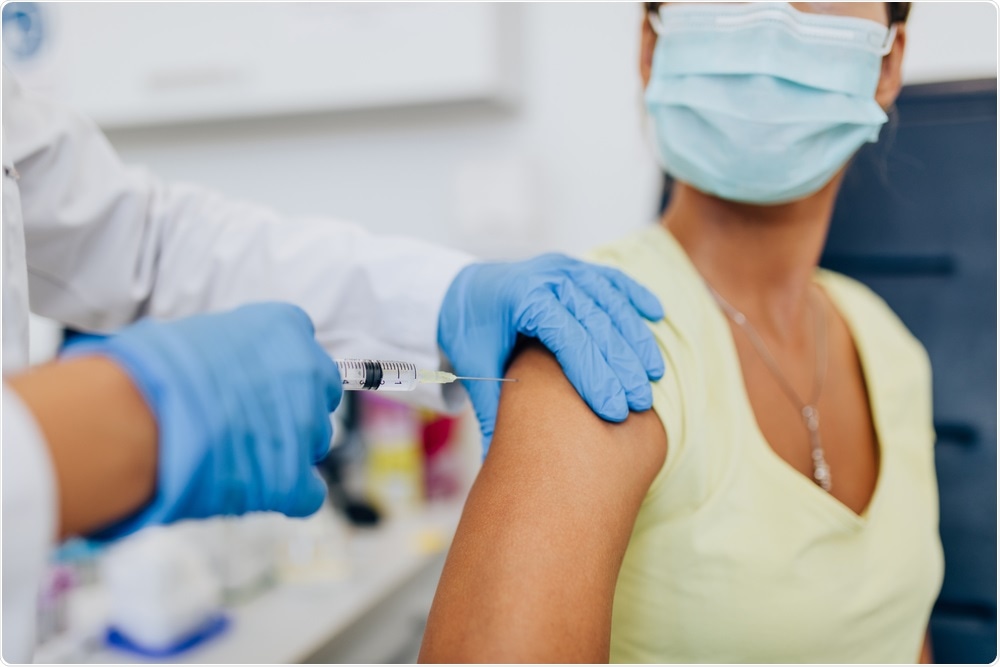A study of healthcare workers administered the first dose of the BNT162b2 vaccine in Italy showed that they had reduced symptoms and faster viral clearance even within six days of vaccine administration.
Several vaccines are now being used worldwide to combat the coronavirus disease 2019 (COVID-19) pandemic. One of these is an mRNA vaccine developed by Pfizer-BioNTech. The BNT162b2 vaccine has a lipid nanoparticle containing an RNA that encodes the spike protein of the severe acute respiratory syndrome coronavirus 2 (SARS-CoV-2). The vaccine is administered intramuscularly in two doses.
However, there is some evidence that even one dose of the vaccine can provide some protection against asymptomatic infection. In Italy, vaccination started in late December 2020 with the first doses administered to identified priority groups.
Researchers from Italy investigated the effect of one dose of the BNT162b2 on symptom duration and viral clearance in healthcare workers. They reported their results in the journal Vaccines.

COVID-19 Vaccine. Image Credit: hedgehog94/Shutterstock.com
Effect of single-dose
The team analyzed routinely collected data for healthcare workers vaccinated between December 2020 and February 2021. They identified documented cases of SARS-CoV-2 infection, types of symptoms, symptom duration, and the time it took for viral clearance.
During the administration of the first dose of the vaccine, 18 healthcare workers tested positive within 12 days of getting vaccinated and half showed symptoms. Giving the healthcare workers the first vaccine dose reduced the duration of symptoms and viral clearance even within six days of administration. Since the median incubation time of SARS-CoV-2 is about 5–6 days, the infections probably occurred just around the time of vaccination.
Five tested positive between 13 and 21 days of getting the first dose and about 40% of them showed symptoms. The presence of symptoms and viral clearance was much shorter in this case.
Thus, even one dose of the vaccine is effective in reducing symptoms and time for viral clearance in healthcare workers vaccinated for less than six days. Although the results show the benefit of even a single dose of the mRNA vaccine, the authors point out some limitations, which include a low number of samples obtained making the statistical analysis of lower quality.
Single-dose beneficial
With a shortage of vaccines in several European countries, strategies are being considered to defer the second dose to provide at least partial protection to a larger proportion of the population. However, there is also the risk of incomplete protection, especially for people at a high risk of infection.
The results indicate one dose of the vaccine reduces symptoms and the time for viral clearance, suggesting a high impact of even one dose of the vaccine. Since a shorter duration of symptoms and the time to reduce viral loads can reduce virus transmission, giving one dose of the vaccine can also significantly reduce the spread.
However, reduced symptoms and a quick decrease in viral load can lead to the undercounting of the number of asymptomatic individuals, who form a significant proportion in COVID-19 transmission. This makes it important to investigate a shift to potential asymptomatic infections after only a single dose of the vaccine.
Currently, the Advisory Committee on Immunization Practices (ACIP) recommends postponing giving the BNT162b2 vaccine to people with high-risk exposure assuming the first dose is not effective. However, as shown in this study, because of the shorter duration of viral clearance and reduced symptoms, giving at least one dose could be beneficial.